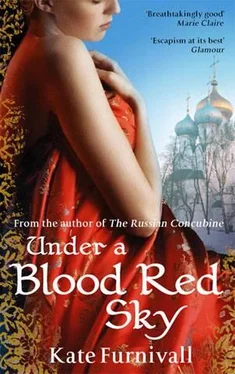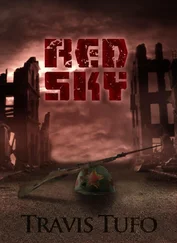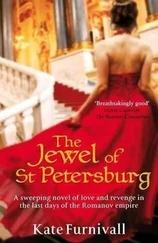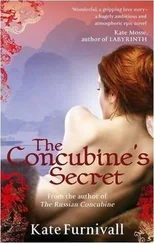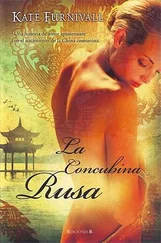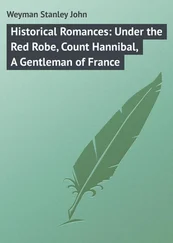‘Yes,’ she said. ‘I’ve done field work.’
‘Where?’
‘On my aunt’s farm.’
‘What kind?’
‘She kept pigs. And sowed oats.’
Enthusiastic voices erupted along the benches.
‘I could use her in my brigade.’
‘We need her in the potato fields!’ a woman shouted out. ‘It’s hard, mind.’
‘She doesn’t look as if she’s up to it, Olga. All straw limbs.’
‘I’m strong,’ Sofia insisted.
A woman in a flowered headscarf and rubber boots reached out from the nearest bench and prodded Sofia’s narrow thigh with a calloused finger. ‘Good muscle.’
‘I’m not a horse,’ Sofia objected, but good-naturedly.
The women laughed. Aleksei Fomenko rapped on the table.
‘Enough! Very well, Sofia Morozova, we will find you work. And I presume Rafik will speak for you.’
‘Yes, my uncle will speak for me.’
‘Have you registered at the kolkhoz office as a resident?’
‘Not yet.’
For the first time he paused. She saw the muscles round his eyes tighten and knew he had started to doubt her. ‘You must do so first thing tomorrow morning.’
‘Of course.’
The boy’s head jerked round to face her, his brown eyes dark with fury as he prepared to speak. That was when she played her trump card.
She smiled straight at the boy and said, ‘I am a qualified tractor driver.’
Pyotr felt his fear of her melt. One moment it was like acid in his throat, burning his flesh, and the next it tasted like honey, all sweet and cloying. He was confused. What had she done to him? She was an Enemy of the People, he was convinced of it. Why else would she be a fugitive in the forest? But when he looked around at the faces he couldn’t understand why they couldn’t see it too. What was she? A vedma? A witch?
‘Pokrovsky,’ he moaned.
The blacksmith glanced down at him. ‘What is it, boy?’
‘I still have something to say.’
‘Just sit still and shut up,’ Pokrovsky growled. His attention was on the stranger.
Pyotr knew that tractor drivers were worth more than the finest black pearls of caviar from the Caspian Sea. The State ran tractor courses at every Machine and Tractor Station throughout the country and a tractor driver was paid more in labour days, sometimes even in cash, but so far no one in the Tivil kolkhoz had succeeded in gaining a place on one of the overcrowded courses. The fugitive had chosen the perfect golden key to open the door into the kolkhoz because a tractor would halve the intensive work of the coming harvest.
‘A tractor driver?’ Fomenko repeated.
‘Yes,’ she answered.
‘You have the MTS certificate?’
‘I have the certificate.’
She was lying, Pyotr was certain she was lying. He could hear the little worms of deceit wriggling against each other as they burrowed into her words.
‘This is excellent news,’ Stirkhov said, ‘otlichnaya novost. The whole village will of course benefit, but…’ He paused, his pale eyes suddenly flatter and harder. ‘But tonight I have come to inform you all of the quotas you are to fulfil with this year’s harvest. The State demands that your quota of contributions be raised.’
A ripple of shock ran through the hall and one woman started to cry in harsh, dry sobs. Moans made a rustling sound like rats in corn stubble. Then came the anger. Pyotr felt it like a wave of hot air, thick on the back of his neck. He was sure the fugitive woman was in some strange way the cause of this dismay, that her presence was drawing disaster to his village.
‘Silence!’ Fomenko rapped on the table. ‘Listen to Comrade Stirkhov.’
‘We’re listening,’ Igor Andreev, a Brigade Leader, said reasonably. His hunting dog whined at his knee. ‘But last December the Politburo ordered the seizing of most of our seed grain and our seed potatoes to feed the towns and the Red Army, so the harvest this season is smaller than a shrew’s balls. We can’t even fulfil the present quotas.’ He stared dully up at Fomenko. ‘Chairman, we’ll be eating rats.’
‘If you work hard,’ Fomenko said quietly, ‘you eat. Stalin has announced the annihilation of begging and pauperism in the countryside. Work hard,’ he repeated, ‘and there will be enough for everyone to eat.’
Stirkhov applauded vigorously. Yuri did the same, and a handful of others clapped with token enthusiasm.
‘Only this week,’ Stirkhov announced, puffing out his chest inside his leather jacket, ‘Stalin is opening the Belomorskiy Kanal. One hundred and twenty million tons of frozen earth were removed by sheer hard labour and now the Baltic Sea is linked to the heartland of Russia. The trade increase in timber alone will bring a flood of prosperity and hard currency to our great Soviet State and its people. And to you as well, brothers of Tivil, so do not talk of failure. See what can be achieved when we work together and follow the vision of our Leader.’
It was Leonid Logvinov who stood up first, the ginger-haired man they still called the Priest, though his church was long gone. Logvinov’s skeletal arm held his wooden crucifix out in front of him, pointing it straight at Stirkhov.
‘God forgive your murdering ways,’ he thundered, ‘and the blaspheming lies of your anti-Christ.’
‘Too far, Priest, you’ve gone too far.’ Stirkhov pounded his fist down on the metal table. But at the same moment the large oak door at the far end slammed open with a crash, rebounding on its hinges, and a wave of cold air swept into the hall. Mikhail Pashin strode into the central aisle, his brown hair windblown, his suit creased.
‘Papa,’ Pyotr cried.
But Mikhail Pashin didn’t hear. ‘Get out of here!’ he shouted. He pointed a finger at the men behind the table on the platform. ‘They’ve tricked you, those two. They’ve kept you cooped up in here while the forces of the Grain Procurement Agency are ransacking your houses. They’re tearing your attics apart, hunting out hidden stores of grain, stripping your larders and stealing your chickens to fulfil their quotas.’
A moan ripped through the benches. Panic forced everyone to their feet.
‘Go home!’ Mikhail shouted above the noise. ‘Before you starve.’
Mikhail Pashin could barely contain his anger. He expelled his breath violently and stepped aside to let the panicked villagers pass. They were pushing and pressing, struggling and shouting, a hundred of them fighting to get through the door as if the blue-capped wolves were actually growling at their heels. It seemed to Mikhail that the people were turning into sheep. Stalin was snipping off their tails yet they didn’t even bleat, despite the fact that ever since the introduction of collectivisation starving peasants had thronged every railway station, clawing their way into the towns and cities. He’d seen them himself, begging in the streets of Kharkov and Moscow, selling their souls for a few kopecks.
Urgently he scanned the bobbing heads. Where was Pyotr? He would be here somewhere. His son’s seemingly infinite capacity for absorbing Communist propaganda made Mikhail clench his teeth, but right now all he wanted was to find him and get him safe. Tonight there would be violence.
Even as the thought entered his head, the crack of a rifle shot ricocheted through the night air outside, bouncing off the izba walls and sending shivers through the valley. A woman screamed inside the hall.
By now the crowd was thinning. A stone abruptly exploded in through one of the side windows as somebody expressed their rage, scattering glass and drops of rain over the empty benches. Mikhail took a deep breath.
‘Pyotr!’ he roared.
‘Papa!’
A huge wave of relief rushed through Mikhail as he caught sight of his son. The boy was right at the front, struggling ineffectually in the massive grip of Pokrovsky. The blacksmith was holding him there, indifferent to Pyotr’s kicks, quietly keeping him out of harm’s way. Mikhail raised a hand to Pokrovsky.
Читать дальше
